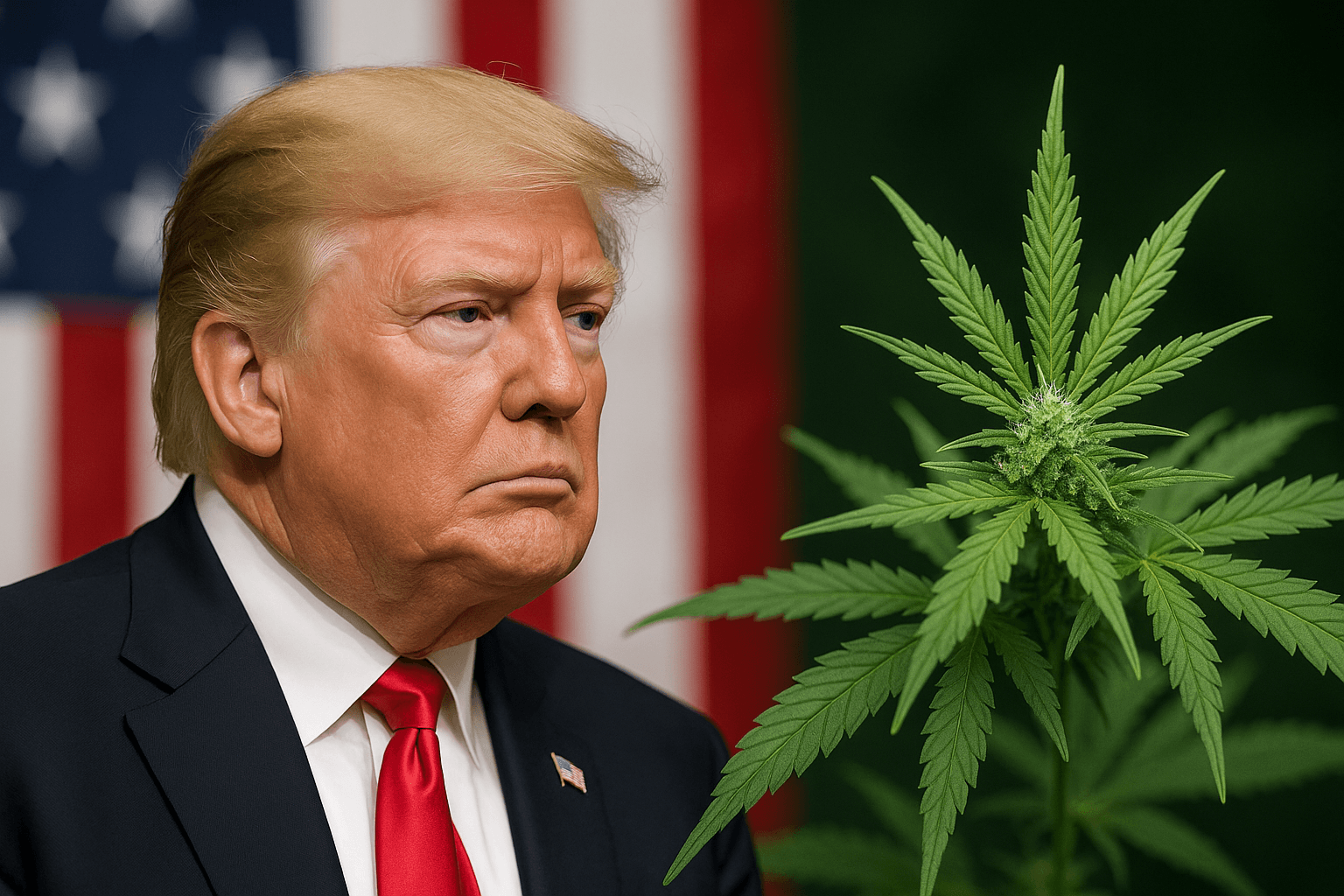Will Trump Reclassify Cannabis This Week?

A massive fistfight broke out on the floor of the Mexican Senate on August 27 as lawmakers clashed over whether the United States should step in to confront Mexico’s drug cartels.
The chaos in Mexico comes just as President Donald Trump is preparing to make news of his own. With a single announcement, he could deal a financial blow to the cartels without firing a shot.
Trump has been weighing whether and how to keep his campaign promise to reclassify cannabis under federal law. Most observers believe he will insist that the DEA move cannabis from Schedule I, where it has been locked since 1971 alongside heroin, to Schedule III. This shift would acknowledge cannabis’s medical use, open new pathways for research, and remove the crushing IRS 280E penalty that has crippled licensed cannabis operators.
Because the federal government still treats cannabis as more dangerous than fentanyl, cocaine, or meth, legal corporations in the United States have been unable to deduct ordinary business expenses. IVN reported in April 2025 that this tax stranglehold has left them unable to compete with the criminal cartels that supply illicit cannabis. (IVN coverage, April 2025)
If Trump makes his move, the balance of power in the cannabis trade could change overnight. One decision in Washington could hit the cartels harder than any Senate brawl in Mexico City.
It remains to be seen if President Trump will deliver what even Democratic Presidents Carter, Clinton, Obama, and Biden could not.
Could Trump Reschedule Cannabis from Schedule I to Schedule II Instead?
There are new indications that the administration has not yet locked in a path, and that they are even considering the possibility that cannabis could be reclassified to Schedule II instead of Schedule III.
However, Schedule II substances remain subject to IRS Code Section 280E, which prohibits cannabis companies from deducting normal business expenses. While this Schedule change would be of little material benefit to a cannabis company's bottom line, Schedule II would open up major opportunities for medical research and traditional financing. Currently, cannabis companies pay significantly more interest on debt because they cannot raise or borrow capital from traditional lenders. They also rely on massive amounts of cash transactions because they can’t use traditional credit cards.
On August 11, in a news conference held in the White House briefing room, he made very brief remarks:
We're looking at reclassification, and we'll make a determination over the next -- I would say over the next few weeks, and that determination hopefully will be the right one. It's a very complicated subject.” (IVN coverage, August 2025)
Trump’s nominee to lead the DEA, Terrance Cole, testified at his Senate confirmation hearing that rescheduling is a priority. Still, he later walked that back, and he has not committed publicly to anything. (IVN coverage, April 2025)
Schedule II vs. Schedule III: What’s the Difference?
- Schedule II substances have a high potential for abuse, but recognized medical uses. They include oxycodone, fentanyl, methamphetamine, and cocaine (still used in limited medical contexts). Prescriptions cannot be refilled; each must be newly written. Research is possible but highly restricted. Importantly, businesses handling Schedule II substances remain subject to IRS Code Section 280E, which prohibits standard expense deductions.
- Schedule III substances have a moderate to low potential for abuse. They include ketamine, anabolic steroids, and low-dose codeine mixtures. Prescriptions can be refilled, research is less restricted, and Section 280E does not apply, meaning businesses can deduct normal operating costs.
Why Schedule II Would Change Very Little for the Industry
Moving cannabis to Schedule II would change very little:
- Section 280E would remain in force, meaning legal cannabis dispensaries and legal cultivators could not deduct normal expenses such as rent, payroll, or marketing.
- Research access would still be heavily restricted, requiring DEA approval and strict compliance protocols.
- Cannabis would remain classified alongside cocaine and methamphetamine, reinforcing its placement among substances with the highest abuse potential.
In short, Schedule II would represent a symbolic acknowledgment of medical value without providing the practical relief that industry stakeholders have sought for years.
IVN Reporting
- Stalled Progress: In April, IVN reported that, despite Trump’s campaign support for reform, everything had paused. (IVN coverage, April 2025)
- DEA Leadership Ambiguity: Nominee Terrance Cole acknowledged rescheduling as a priority in his confirmation hearing, but would not specify the timing, leaving huge uncertainty. (IVN coverage, April 2025)
- Public Pressure: In July, Mike Tyson publicly urged Trump to “make good” on his rescheduling promise. (IVN coverage, July 2025)
- Internal Deliberations and Trump Speaks From The White House: By August, the Wall Street Journal reported that a rescheduling report sat on Chief of Staff Susie Wiles’s desk, awaiting action. (IVN coverage, August 2025)
The Bottom Line
If President Trump directs the DEA to reclassify cannabis to Schedule II instead of Schedule III, the practical effects for the legal market would be minimal. Cannabis businesses would still not be able to deduct expenses, leaving them unable to compete with illegal drug cartels.
The president’s decision, when it comes, will signal whether the administration intends to deliver meaningful change for the regulated market and achieve what no President has been able to do in 55 years or continue to empower forces that don’t play by any rules at all.
 Cara Brown McCormick
Cara Brown McCormick





